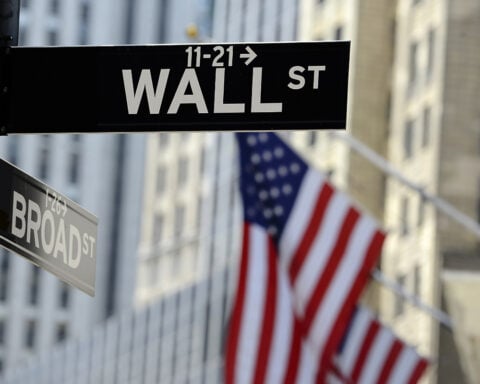After enduring its most challenging week since April, Wall Street saw a positive turn on Monday, with U.S. stocks clawing back some of their recent losses. The S&P 500 gained 0.5% by midday, breaking a three-day losing streak and marking its first gain since achieving an all-time high the previous Tuesday.
The Dow Jones Industrial Average showed a modest increase of 21 points, or 0.2%, while the Nasdaq composite rose by 0.7%, driven by a rebound in Big Tech stocks. Nvidia surged by 2.4%, and other major technology companies also recovered from their sharp declines of the prior week. Concerns about their high valuations had previously contributed to the market’s downward trend.
Alphabet and Tesla, both experiencing increases of at least 1.7%, are set to report their quarterly earnings on Tuesday. These reports will serve as a significant test for these companies and the broader market. Investors are closely watching to see how these tech giants performed in the spring.
Treasury yields remained relatively stable following President Joe Biden’s announcement that he will not seek re-election. This development is expected to unwind some of the market’s “Trump trade,” which had surged after Biden’s weak performance in a recent debate raised expectations for a victory by former President Donald Trump. Bank stocks had risen on forecasts of lighter regulations in the event of a Republican sweep, and longer-term Treasury yields climbed more than short-term ones based on expectations of policies that could further increase the U.S. government’s already high debt.
Biden’s decision to step aside was not a major surprise to the market, with many analysts suggesting it was anticipated. This decision could potentially reduce the odds of a Trump victory, but the Democratic Party will need to rally around a new candidate.
The 10-year Treasury yield held steady at 4.24%, the same level as late Friday, while the two-year yield remained unchanged at 4.52%. Other market sectors that could have reacted strongly to election uncertainty were mostly quiet, with the U.S. dollar’s value holding steady against major rivals.
Corporate earnings reports and U.S. economic growth data are expected to continue capturing market attention. Analysts predict that companies in the S&P 500 will deliver the strongest profit growth for the latest quarter since the end of 2021. Truist Financial, for example, saw a 2.9% rise after reporting stronger-than-expected net interest income, a key measure of overall profit.
Verizon Communications, however, experienced a 6.4% decline after its latest quarterly profit met analysts’ expectations, but its revenue fell slightly short. This week, investors will also be closely watching earnings reports from other major U.S. companies, including Coca-Cola, Ford, and American Airlines.
Airlines faced ongoing delays on Monday following a global technology outage caused by a faulty software update. While most of the disruptions appeared to have been resolved over the weekend, Delta Air Lines still experienced significant cancellations. Delta’s stock fell by 1.9% as a result. CrowdStrike, the cybersecurity firm involved in addressing the issue, confirmed that the problem was not a security incident or cyberattack. Despite this, CrowdStrike’s stock dropped by 12.5% on Monday, following an 11.1% decline on Friday.
In international markets, European stock indexes saw gains, while Hong Kong’s Hang Seng increased by 1.3%. In contrast, stocks in Shanghai fell by 0.6% after China’s central bank unexpectedly lowered a benchmark interest rate for loans. This move came in response to the government’s report that the world’s second-largest economy grew at a slower-than-forecast pace in the second quarter.
As Wall Street navigates these developments, investors remain focused on corporate earnings and economic indicators, which will likely continue to influence market movements in the coming days.







